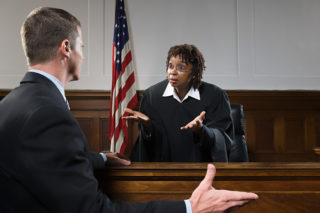Recently I received an e-mail from an attorney who followed my advice regarding General Objections. It went like this:
“I read your article ‘Why you Need to Bring a Motion to Strike General Objections,’ and filed a ‘Motion to Strike Defendants’ Preliminary Statement and Unmeritorious Objections.’ The Preliminary Statement contained many of the issues you pointed out in your article, and each of defendants’ responses to interrogatories and document requests contained the same 28 lines of objections. The court then separated the motions to compel from the motions to strike and refused to rule on the motion to strike stating “There is no such motion.” Is the court correct?”







